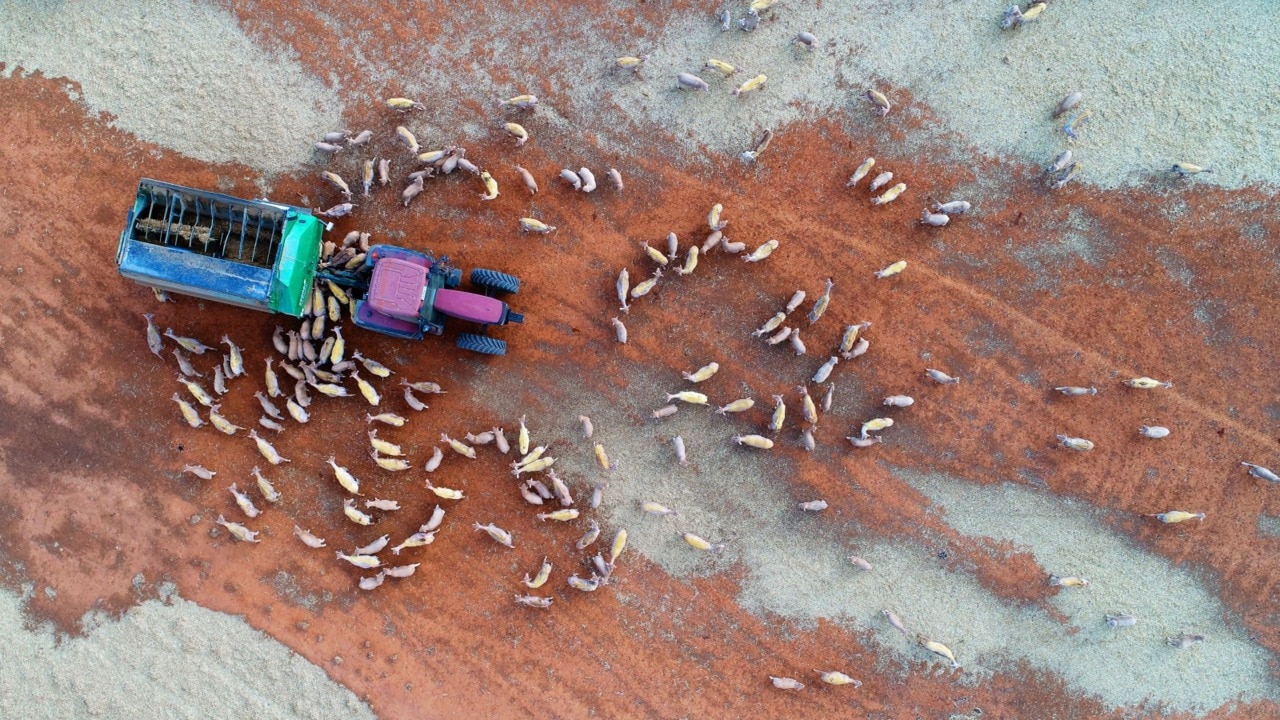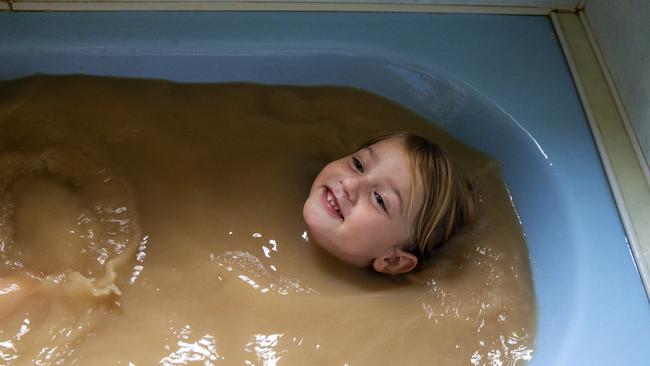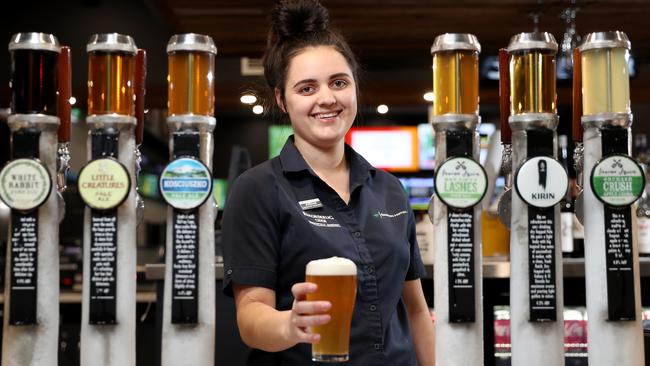Poor water quality forces farmers to spend money on clean water as drought continues
Clean drinking water is one of the biggest concerns for farmers with some “seriously bad” water quality in many western towns. Some families are spending hundreds of dollars on clean water that lasts only three weeks — another expense they don’t need.

NSW
Don't miss out on the headlines from NSW. Followed categories will be added to My News.
- Daily Telegraph’s inaugural Bush Summit is on July 18.
- Farmers call for water supply cut to SA during drought
Clean drinking water is among the most serious issues facing regional communities, Country Women’s Association NSW says, with farmers forced to fork out hundreds of dollars to stay hydrated and bathe.
CWA NSW chief Danica Leys said on Tuesday drought was the top issue of concern for her 8000 members, who want city folk to realise it was ongoing and relentless over the past two years.
“Even when it does rain, we could still be looking at least six months — probably more like 12 to 18 months — before enterprises can start to get some meaningful income,” Ms Leys told The Daily Telegraph.
“It’s not just back to normal, they will be playing catch-up for years to come.”

MORE NEWS
MAFS soft serve millionaire banned from business
Special report: The major concerns for Sydney’s future revealed
Man sentenced to jail over loaded gun in underpants
Water management is a key concern for CWA members, with access to clean water a problem not only in terms of the contentious Murray-Darling Basin plan but more broadly.
“The main message from us is to have greater transparency in terms of how decisions are made for water management,” she said.
“The other issue is in relation to the quality and quantity of town water.”
Ms Leys said there was some “seriously bad” water quality in many western NSW towns, including Dunedoo, Menindee and Walgett.

“We are being told that the water — even though it might come out of your tap brown — that it still meets a certain standard of water, but you wouldn’t drink it,” she said.
“People are reporting all different kinds of symptoms from having to use it for bathing.
“Some towns are on very severe water restrictions and the water that they do have is really, really poor quality.”
Cattle farmer Neil Crosier has been forced to buy drinking water for his property in Curra Creek, an hour south of Dubbo, for the past three years.
He pays about $300 for 13,500 litres which lasts about three weeks.
“It’s just another expense when times are tough with the farm as well,” he said.
“And for a family of five kids and two adults it goes pretty quickly. We are fairly cautious with it because it’s not cheap for us … we just use it for drinking, washing and showering.”

Avdata Australia figures show disparities in the cost of clean drinking water across the state, with people in Temora paying about $6 per kilolitre but in Cootamundra it costs $4.53 per kilolitre and in the Upper Hunter about $3.65 per kilolitre.
In Sydney water is only $2.11 per kilolitre.
Ms Leys said the drought was obviously hurting farmers, but also rural economies.
Another key issue was the ageing population, including a shortage of aged care services in small country towns forcing older family members to move to larger regional centres away from their families.
Ms Leys said that education facilities could also be improved in some areas, making them a more attractive “tree change” destination for young families.

CHEERS TO THE COMMUNITY
A regular drinking venue is not just about good beer, with local pubs and clubs acting as support networks for their communities.
Particularly in regional areas, pubs and clubs can help in times of stress such as drought, Sydney researchers have found.
“The ability to shake hands or put an arm around a friend are essential ingredients for coping with stress,” University of Western Sydney social-personality psychologist Dr Peter Jonason said.
“Locals are a place where people can seek out social support … when they have nowhere and no one else to go to.”
Garden Hotel Dubbo manager Jordan Hislop, 22, said locals used the venue as a social hub. “Our environment is more about people getting along and coming together to catch up with people they know,” he said.
The research, commissioned by Lion Beer Australia, surveyed 1200 people and studied people in 162 pubs and clubs.
“Pubs and clubs should always be recognised and valued for their important role in rural and regional Australia,” Lion managing director James Brindley said.
— Adella Beaini

HELPING IS MORE THAN JUST DOLLARS
Leading bush charity Rural Aid, which spent $30.5 million to support farmers and regional communities last financial year, says corporate know-how and hands-on help is as valuable as money for struggling towns.
The not-for-profit said the money raised by Australians in the year to June 30 bought nearly 67,000 bales of hay at a cost of $22.6 million, more than $4 million in financial assistance and provided 3700 farmers with counselling.
It also spent $4.3 million on financial assistance for 4798 farmers and 7.6 million litres of water.
But while money for hay, water and support services is important, Rural Aid CEO Charles Alder said long-term support for the bush will take more than just cash.

“We can always raise money for hay but we can never give enough hay to create long-term, structural change,” Mr Alder, who will take his message to The Daily Telegraph’s Bush Summit tomorrow, said.
“The city has lots of exciting new businesses, people with time and skill sets that aren’t always available to people in the bush.”
Mr Alder said communities need help accessing the skills and contacts that city dwellers can take for granted.
The charity already has a number of corporate partners, including Woolworths which donated $1.5 million and then raised more than $7.8 million from customers and staff.
The retailer also seconded a senior supply chain manager into Rural Aid for several months to manage national freight logistics for the charity.
“We are keen to marry up corporates to support country areas with volunteers and skills — it may not actually cost a lot of money,” Mr Alder said. “It’s about thinking what smarts they have that can help rural businesses survive longer.”
— Emma Blake
Originally published as Poor water quality forces farmers to spend money on clean water as drought continues


